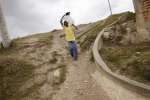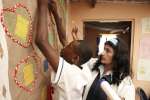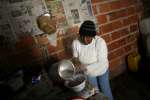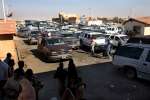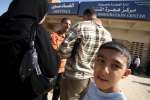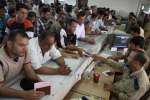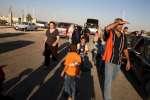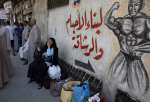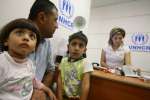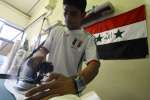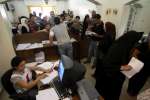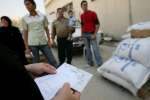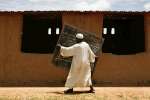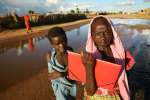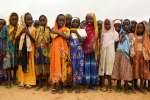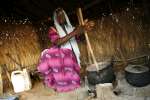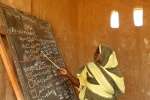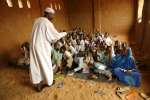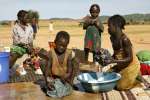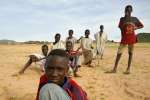Renewed partnership between UNHCR and Educate A Child to give 710,000 refugee children access to primary education
Press Releases, 14 December 2015
Geneva-Doha, 14.12.2015
Educate A Child (EAC), a global programme of the Education Above All Foundation, and UNHCR, the UN Refugee Agency, are launching a new three-year partnership that will provide access to education for 710,000 children affected by conflict and forced displacement in Africa, Asia and the Middle East.
Building on a partnership that has given more than 260,000 vulnerable children access to primary school since 2012, the new EAC-funded programme will continue to support the education of these children and help enrol a further 450,000 in schools over the next three years. About half of the beneficiaries are expected to be children displaced by the Syria crisis, with the rest in Chad, Ethiopia, the Islamic Republic of Iran, Kenya, Malaysia, Pakistan, Rwanda, Sudan, South Sudan, Uganda and Yemen.
Wars, conflict and persecution in recent years have forced millions to flee their homes and seek refuge and safety elsewhere. The number of forcibly displaced people stood at almost 60 million at the end of 2014. Children make up half of the world's refugees, and they face the greatest risks from conflict and displacement.
The need to ensure an education for children in crisis settings has never been more urgent. Refugee children are often the most marginalized and hardest to reach and help. They face challenges to get a proper education, including extreme poverty, social exclusion, trauma and language barriers.
Marcio Barbosa, Chief Executive Officer of Education Above All, welcomed the new agreement. "Despite progress, the number of out-of-school children is increasing, in part due to the refugee crisis driven by conflict and insecurity. It is therefore crucial to act now through initiatives such as this partnership to put measures in place for the hundred thousands of displaced children to continue their education wherever they may be," he said. "After the successful completion of our previous project with UNHCR, which provided access to education for over 260,000 out-of-school children, we are confident that this project will make an impactful, positive difference to the lives of children and families who need our help the most," Barbosa added.
UN High Commissioner for Refugees António Guterres said: "Education helps protect refugee children, and investing in a child's education is an investment in their future and in the generations to come. This important partnership will help UNHCR overcome some of the most pressing barriers to education for hundreds of thousands of refugee children, which will give them both a safer childhood and a better future."
The US$57.9 million donation from EAC will focus on improving the quality of teaching and learning; ensuring safe learning environments for children; promoting awareness and advocacy on the importance of education for refugee children; and strengthening capacity and partnerships with ministries of education and other actors to enable more refugee children to access educational opportunities.
Education projects will include innovative activities, tailored to address key gaps which limit access to quality education for out-of-school children. Examples of these activities are special support for girls through peer support groups and school clubs in Uganda; a savings and loans programme for parent teacher associations in Sudan; a summer camp with educational activities for forcibly displaced children in Syria; and the provision of tablets to enhance access to reading material in Sudan, Rwanda and Ethiopia.
Educate A Child (EAC)
Launched in 2012, EAC, a global programme of the Education Above All Foundation, aims to trigger significant breakthroughs in providing quality primary education to the 59 million children who currently have no access to schooling. Through EAC-supported projects (more than 40 projects in 38 countries), children overcome barriers to educational access and retention. With the overall goal of successfully completing an entire cycle of quality primary education, EAC strives to improve both individual and social outcomes for these children. For more information, visit educateachild.org.
Education Above All (EAA)
Education Above All (EAA) is a global initiative founded in 2012 by Her Highness Sheikha Moza bint Nasser. EAA's aim is to build a global movement that contributes to human, social and economic development through quality education and other welfare programmes and initiatives. With a particular focus on areas affected by poverty, conflict and disaster, EAA champions the needs of children and youth and empowers them to be active members of their communities. By meeting the demand for education, EAA equips them to support sustainable development and to nurture environments of peace, security, justice and prosperity. EAA is the umbrella organisation overseeing three core programmes: Educate A Child, Al Fakhoora and Protect Education in Insecurity and Conflict (PEIC), as well as one special project, the Kakuma Project. For more information, visit educationaboveall.org.
UNHCR
UNHCR, the UN Refugee Agency, established in December 1950, is mandated to lead and coordinate international action to protect refugees and resolve refugee problems worldwide. Its primary purpose is to safeguard the rights and well-being of refugees. It strives to ensure that everyone can exercise the right to seek asylum and find safe refuge with the option to return home voluntarily, integrate locally or resettle in a third country. It also has a mandate to help stateless people and is often called on to help people displaced within their own countries. The agency, which has a staff of some 9,300 people in more than 120 countries, has helped tens of millions of people. Learn more at www.unhcr.org and www.facebook.com/UNHCR.
EAA Contacts:
-
Lubna Al-Attiah, Education Above All
+974 5563 8868
lalattiah@eaa.org.qa -
Kelly Signorelli-Chaplin
Memac Ogilvy, PR for Education Above All
+974 5516 2822
kelly.signorelli@ogilvy.com
UNHCR Contacts:
-
Andreas Needham, Senior Communications Officer
+41 79 217 3140
needham@unhcr.org -
Glenn Jusnes, Corporate Relations Officer (PSFR)
+45 45 33 73 69
jusnes@unhcr.org







